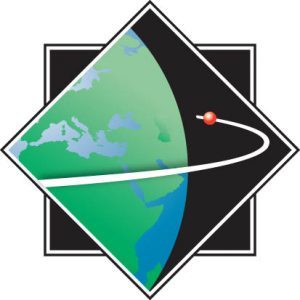 Be sure to check these links to pages on this website that you will need:
Be sure to check these links to pages on this website that you will need:
Eligibility
Please note that you do not have to compete in a school science fair to enter this regional science fair. Any student in the region can and is encouraged to participate!
Participation in the FLASF Science Fair is open to all students in grades 5 to 12 (under the age of 21 as of June 30th of the year of the Science Fair) who attend any public, separate, or private school, or who are home-schooled, in the City of Kingston, Frontenac County and Lennox & Addington County. Students do not need to qualify through a school competition and can enter FLASF directly.
To be eligible students need to pay the registration fee and register following the registration procedures and the necessary declarations before the deadline set by the Science Fair Committee (see Schedule Page).
A project that has been presented at a previous FLASF science fair is not eligible. However, a project may be re-entered into competition if it has undergone substantial improvements which greatly increase the level of science presented.
Exhibits
Only one exhibit per student may be entered. Individual exhibits and exhibits done by a maximum of two students working on one project will be accepted. The exhibit must be designed and presented entirely by the student(s); although advice and guidance may be obtained from anyone, as long as the necessary acknowledgements are included.
Help and Information
The following links are from organizations outside of FLASF and offer ideas and advice on selecting, carrying out and presenting a science fair project. Because this information is from outside sites, the information may not be exactly applicable to FLASF, but they do serve as valuable resources to help you in preparing your project for the science fair. We suggest you look look through these links.
GENERAL INTEREST (a place to start)
A great place to find videos for tips and information on how to prepare your project, plus videos of past science fairs to show you what does happen at a science fair.
PROJECT IDEAS; FROM START TO FINISH (Picking a project idea to displaying your project at a fair)
MyStemSpace is a great place to find project ideas, inspiration and resources.
Science Fair Student Workbook (BE SURE TO READ THIS ONE!)
A very useful workbook to help guide you in your project. This workbook is full of valuable information and is a 'must read' for both new and seasoned science fair participants. Because it has been prepared by an Ontario Regional Science Fair Group (the Bay Area Engineering and Science Fair), most of the information in this book is applicable to FLASF.
A useful workbook to help guide the teacher to help students prepare projects and run a school science fair. Prepared by the Bay Area Engineering and Science Fair.
Your Ultimate Canadian Science Fair Resource: Getting Started and Stepping Up
A useful website to help guide you on how to organize your project and prepare a display for the science fair. This site also includes links to a guide for more experienced students on how to improve your project. The web site is sponsored by Youth Science Canada.
Looking for inspiration for a science fair project? Science Buddies has over 1,000 Project Ideas in all areas of science.
An open-source framework for teaching and learning K-12 science and developing the skills of inquiry, creativity and innovation in a meaningful and engaging manner.
This site is designed to help students 'Design and conduct an investigative experiment (investigation)' and 'Design and engineer a practical solution to a problem (invention)'.
Instructions for designing and performing an experiment or demonstration and lots of project ideas
Science Fair Guide: Resources for Teachers
A resource for teachers to help students prepare for a science fair, including management tips and instruction worksheets (NOTE: This has been prepared by Holt Science and Technology and some aspects of this document, including the marking schemes identified) are different from FLASF).
Boys and Girls Science and Tech Club
A rich set of resources to complement and supplement the elementary science curriculum in classrooms and at home. The activities are full sets of illustrated instructions for making simple tools and objects that illuminate important science concepts. All of the objects are made with 'found' materials that may otherwise end up in the garbage or recycling bins. Children can work with an adult to create the objects and then play with them to see how science works.
NATIONAL ORGANISATION
All about the Canada Wide Science Fair as well as a resource for parents and students.
Contact Us:
If you have any questions about your project, ask the student coordinator at students<at>flasf.on.ca. For a complete list of FLASF contacts, see Contact Us
